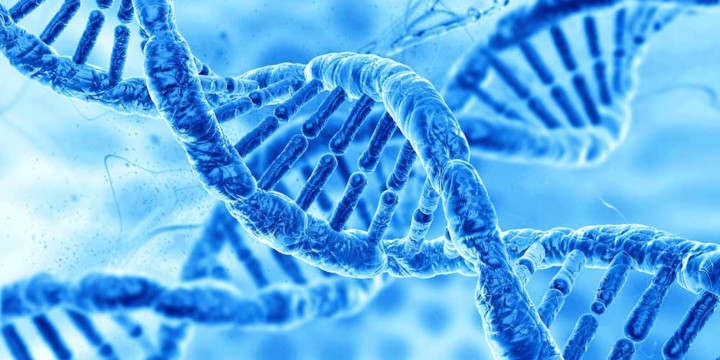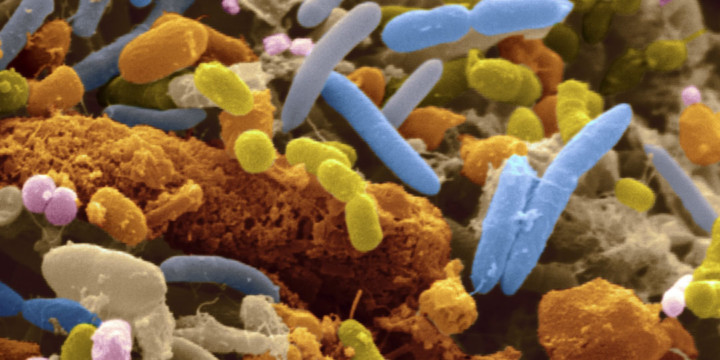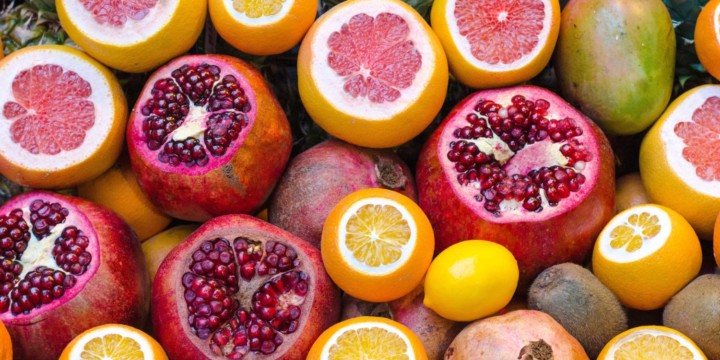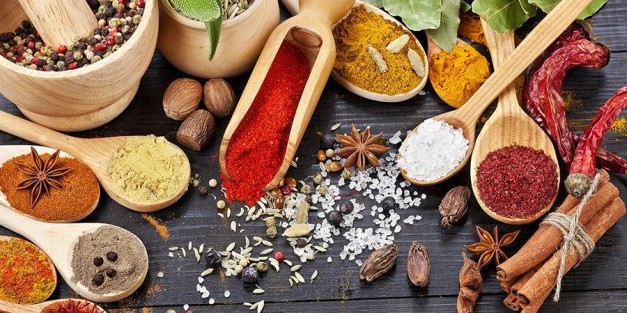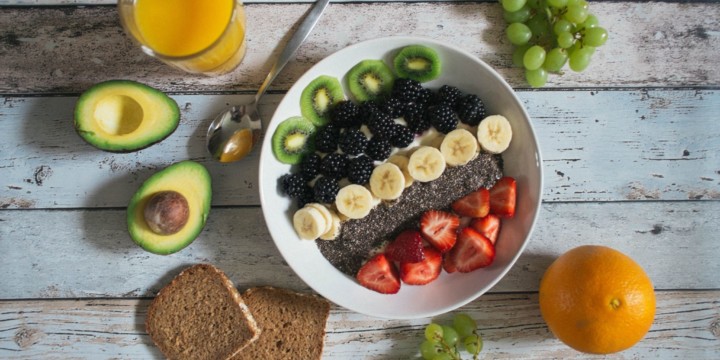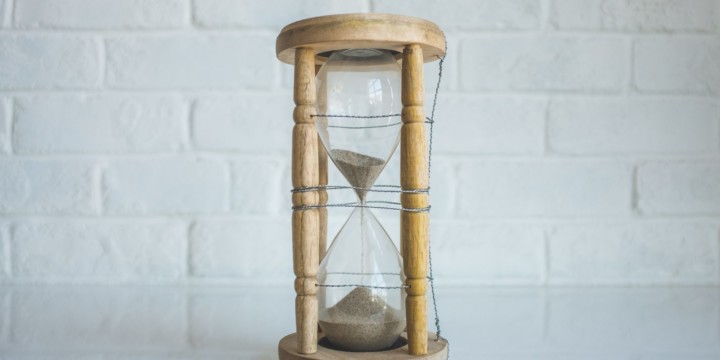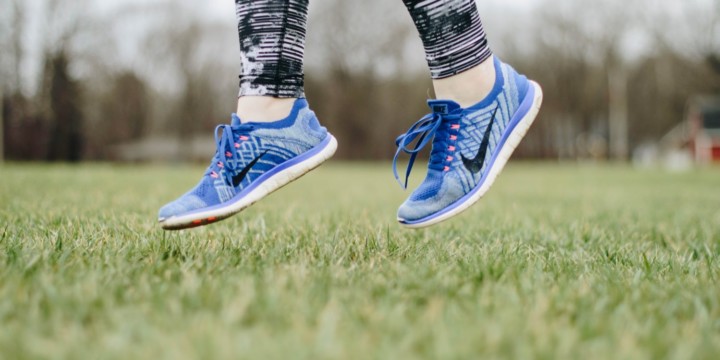Physiology of Polycystic Ovary Syndrome
Polycystic Ovary syndrome is a set of symptoms resulting out of imbalance of hormones. It affects 4%-12% of the women of the reproductive age. The hormonal imbalance presents itself in the form of excess LH, decrease in the level of FSH and increased levels of androgens. The effect of hormonal imbalance could manifest in hirsutism, amenorrhea, irregular menstrual cycle or multiple cysts in the ovaries. The name “polycystic” could be misleading as many women suffering from PCOS don’t have ovarian cysts.
Hormones involved: Luteinizing Hormone(LH), Follicle Stimulating Hormone (FSH), Estrogen & Androgen, GnRH
Organs and Glands involved
Hypothalamus
Hypothalamus is the lower part of the brain and it maintains the homeostasis of the human body. It uses various set points in the body system such as electrolyte level, body temperature etc. It produces Gonadotropin-releasing hormone (GnRH) to send the signal to Pituitary to secrete FSH and LH.
Pituitary Gland
The pituitary gland regulates the functioning of ovary each month by secreting FSH and LH into the blood. The FSH signals the ovaries to produce follicles containing immature eggs whereas LH that signals the ovary to release the egg from the follicle once the follicle is mature for the release of the egg.
Ovaries
Ovaries contain a lifetime supply of eggs. With the onset of puberty, the ovaries get activated and start releasing eggs in monthly cycles. In a normal cycle when FSH reaches the ovaries, hundreds of follicles begin to mature.During this process, follicles secrete estrogen, the main female hormone. When the level of estrogen reaches a certain level, it prompts a surge of LH to be released by the pituitary, which causes the mature follicle to break open and release the egg. The rest of the follicles that could not release the egg are dissolved.
In PCOS, the LH level is much higher than normal. This leads to more production of androgen from the cells in the sac surrounding the follicles. The excess male hormones are largely responsible for the symptoms such as hair growth on the face and other parts of the body, receding hairline, male pattern balding etc. In a normal body, this androgen gets converted to estrogen and thus the estrogen level increases as the follicles mature. But, in PCOS due to excess of androgen surrounding the follicles, the androgen travels to different parts of the body. The androgen can also be converted into estrogen in fat tissues thus increasing the estrogen level in the body. The increases estrogen level gives a negative feedback to the pituitary to lower the production of FSH. If the FSH level is low, the follicles don’t get a signal to start maturing. This, in turn, can lead to the absence of periods. Further, the immature follicles don’t dissolve and remain fluid-filled sacs or cysts. These sacs produce large quantities of androgens or specifically testosterone.
Pancreas
The pancreas produces insulin to regulate the level of glucose in the blood. PCOS is often associated with insulin resistance as well as defects in insulin secretion. Many pieces of research have shown that a single enzyme may be responsible for both insulin resistance and excess androgen secretion.
Adrenal gland:
It is also seen that androgens are not only released from ovaries but also from adrenal glands. In a stress situation, pituitary signals adrenal directly to produce androgens.
Symptoms
- Weight gain or trouble losing weight
- Irregular periods or absence of periods
- Abnormal growth of hair on face, chest or back — Hirsutism
- Male pattern baldness or thinning of hair on the scalp
- Multiple cysts in the ovaries
Treatment in Allopathy
Your doctor will suggest you make dietary and lifestyle changes. Generally, birth control pills are prescribed as a means to control the symptoms. Synthetic progestin is prescribed for those who are unable to use the hormone estrogen. It helps to build up the endometrial lining. Other medications include androgen lowering diuretic, and metformin for managing blood sugar. Clomiphene and gonadotropin injections are used for increasing the fertility.
PCOS in Ayurveda
Ayurveda considers PCOS among the category of Yoni Vyapad. The treatment protocol consists of rebalancing Vata, primarily Apana Vayu which supports movements below the navel. It controls all movements that go downwards and out like urine, defecation, menstrual blood, ovum, childbirth, and ejaculation.
Depending on the symptoms PCOS in Ayurveda is divided into Vataja, Pittaja, and Kaphaja.
A Vata dosha predominance is marked by irregular and painful menstrual cycles, low weight and increased sensitivity to cold.
A Pitta dosha predominance shows up in acne, painful menstrual cycles, blood clots, and hair loss.
A Kapha predominance causes hirsutism, increased weight, infertility, diabetic tendency, and increased sensitivity to cold.
Treatment of PCOS in Ayurveda
The first line of treatment according to Ayurveda is to clear the obstruction in the pelvis and to regulate the rhythm of the menstrual cycle. A wide range of phytosterols and synergistic estrogens strengthen the functioning of the ovary.
Ayurveda therapy works on correcting Agni, detoxifying the ama (toxins) from the body and reducing the circulation of male hormones within the body. The goal of therapy is to optimize the functioning of the ovaries and to correct the luteal phase defect. Post-ovulation the endometrium lining of the uterus thickens in the anticipation of pregnancy. However, for women suffering from luteal phase defect this thickening of endometrium doesn’t happen which makes it difficult for them to get or remain pregnant.
Panchakarma for PCOS
Panchakarma is the detoxification and rejuvenation therapy to treat a host of diseases and has proved quite successful in relieving PCOS symptoms.
The word panchakarma means five actions and refers to five methods intended to deeply cleanse the system.
- Abhyanga (Body Massage) of the whole body with oils imbued with medicines
- Swedana (steam therapy) with medicines having anti vata properties.
- Basti is enema and it helps balance Apana Vayu because the seat of vata is the colon. It helps in clearing the obstruction of the pelvis.
- Matra Basti/Uttar Basti – is highly efficacious to calm down Vata Dosha.
- Pratimasha Nasya also plays a significant role in regulating ovarian pituitary hypothalamus axis. In this therapy, the little finger is dipped into a small amount of medicated or plain ghee and it is inserted into the nostrils. The inner walls of the nostrils are massaged slowly – clockwise and anti-clockwise and it helps in relieving stress.
Diet
Natural, unprocessed, fresh food is highly recommended. Asparagus, sprouts, flax seeds, soy products should be included in the diet. At the same time avoid dairy products, sweets, refined flour, aerated drinks, sweetened beverages, packaged food and non-vegetarian food (fatty fish are allowed)
Herbs for Treating PCOS
Shatavari, Laxaman, Madhuryashti, Kashmarya, Dashmool, Garlic, Erand, Punarnawa, Chitrak Bilwa, Aloe vera, Cinnamon, Fenugreek, Aamalki, Honey, Shilajeet, Ashwagandha, Kanch, Vidarikand, Triphala, Ashoka, Neem, Tulsi, Kushmand, Amrita, Manjistha, Jeerak, Ajmod, Flax Seed, Evening Primrose oil, etc.
Yoga and Pranayama
Yoga and Pranayama are therapeutic for PCOS. A regular practice will ensure alleviation of symptoms. Given below are illustrative Yoga Asanas and Pranayamas that you can include in your practice. Apart from Yoga practice 15 minutes of meditation or Yoga Nidra in your daily schedule.
| Surya namaskar | Upavistha Konasana | Halasana |
| Padahastasana | Bhujangasana | Supta Konasana |
| Kati chakrasana | Dhanurasana | Ardha Matsyendrasana |
| Paschimottanasana | Uttanapadasana | Anulom Vilom Pranayama |
| Baddha Konasana | Sarvangasana | Bhastrika Pranayama |
Naturopathy and PCOS
Naturopathy believes in the healing power of the body. It regards accumulation of toxins in the body as the root cause of most of the chronic diseases. Naturopathy treatments are based on balancing the five basic elements of nature – Prithvi, Aap, Tej, Vayu, and Akash.
Treatment of PCOS in Naturopathy
The aim of the PCOS treatments in naturopathy is to –
- Regulate and lower the blood sugar and insulin levels.
- Decrease the excess male hormones and regulate hormonal activity thereby reducing issues related to acne, excessive facial hair growth, and hair loss
- Enhance the production of progesterone.
- Regularize ovulation, menstruation and improve fertility.
- Bring in weight loss
Lifestyle intervention is the first line of treatment in the management of PCOS. It believes that even minor changes in lifestyle can improve the symptoms and contribute towards psychological well-being.
Detox
A naturopathy detox involves fasting, administration of enema, colon hydrotherapy, massages, mud pack, kidney and liver packs. These therapies ensure the expulsion of deep-seated toxins from the body.
Hydrotherapy
Hydrotherapy is the external or internal use of water in any of its forms (water, ice, steam) for her treatment of various diseases.
Treatments like revulsive compress, cold hip bath, cold abdomen pack etc are given for improving the circulation in the pelvic region.
Diet
Diet rich in fresh fruits, vegetables, and whole grains is recommended. Avoid starving or going for fad diets as these measures lead to a reduction in metabolic rate and eventual weight gain. Some of the pointers for diet are given below-
- Include foods rich in complex carbohydrates like whole grains and millets like jowar, bajra and ragi.
- Have a handful of nuts on a day-to-day basis and also include sprouts and beans in your daily meal for meeting body’s protein requirements.
- For healthy snacking, eat sunflower seeds, pumpkin seeds, flax seed, sesame seed and roasted groundnuts.
- Take buttermilk for your body’s calcium and probiotic requirement. They also help in relieving abdominal bloats.
- Include more of fruits and salads in the diet.
- Include fruits that are low in glycemic indexes such as papaya, guava, or apple
- Drink sufficient water to keep your body hydrated
- Cut down excessive salt, refined flour, deep fried or oily food items.
- Avoid aerated drinks as they contain a very high level of sugar and increase the insulin resistance.
- Increase the intake of healthy fats in your diet up to 20-30 percent of daily calorie intake. Healthy fats such as ghee, butter, coconut oil, olive oil, avocado, and nuts provide you with satiety and help you to remain full for a longer period of time.
- An early and light dinner preferably 3-4 hours before your bedtime is an ideal option.
Exercises, Yoga and Meditation
Naturopathy regards exercises as vital for treating PCOS. Apart from yoga, pranayama, you can go for strength training and aerobics. Strength training expedite the weight loss by building the muscle mass.
Polycystic Ovarian Syndrome and Homeopathy
Polycystic Ovarian Syndrome or PCOS is a condition that is treated excellently in homoeopathy. Homoeopathic medicines act in a gentle manner and heal without side-effects. PCOS is caused by hormonal imbalance. Homoeopathy uproots this hormonal imbalance and nullifies the symptoms caused due to the altered hormone levels. Post-treatment, the woman gets her period regularly, loses weight and gets rid of acne and unwanted facial hair.
Treatment of PCOS in Homeopathy
Each woman suffering from PCOS gets her own special remedy that is tailor-made to suit her needs.
PCOS is a chronic condition and requires a constitutional remedy that is selected after taking into account a person’s physical and emotional make-up, genetic predisposition, food preferences, conditions that aggravate and ameliorate the disease condition, seasonal variations and several other factors.
Here are a few remedies that are most commonly used in PCOS.
- Natrum Mur– This remedy tops the list of homoeopathic medicines that are used to treat menstrual irregularities due to hormonal imbalance. This remedy is suited to women who are sensitive and reserved. They tend to overthink and over analyze a lot. Disappointments and rejections are the underlying reason for several symptoms. The menses are scanty and highly irregular. The woman looks pale and anemic. The characteristic feature of Natrum Mur is a headache. A headache is brought on every time she steps out in the sun. The woman typically describes the pain as a thousand hammers striking in her head. Crying is cathartic but sympathizing with her will only worsen the complaints.
- Sepia– This remedy is used to treat menstrual irregularities in females who are tall and thin with a narrow pelvis. The Sepia woman is very indifferent. She shows a dullness and lack of interest in family, friends and all activities. The menses are very scanty. All her complaints get aggravated just before menses. Sepia is also an excellent remedy for depression arising at the time of menopause. This remedy deals well with the excessive facial hair, especially on the upper lips, that is a common symptom of PCOS.
- Pulsatilla– Pulsatilla is well suited in cases of delayed puberty. It is also very helpful in cases of suppressed menses. The menses are always delayed and are painful and very scanty when they appear. The lady becomes extremely sad and gloomy at this time and desires a lot of love and sympathy from those around her. Lack of sympathy and love may make her angry, snappy and jealous. Physically the complaints of Pulsatilla are better in cold, open air. There is a complete absence of thirst.
- Calcarea Carb– This remedy is suited to PCOS in fair, fat and flabby females. They are extremely lazy and sluggish in all activities. They suffer from menses that are very profuse and last for a duration that is longer than normal. They sweat excessively, typically on the head and the back of the neck. They are extremely sensitive to cold weather. She loves eating boiled eggs and at times desires for strange things like chalk or lime.
- Thuja Occidentalis– Thuja is a great remedy for treating the symptoms of PCOS. Scanty menses with severe pain in the lower left side of your abdomen and back which radiates down to the left leg is the hallmark in Thuja. Thuja also effectively deals with PCOS complaints like excessive hair growth, cysts in the ovaries especially left ovary and weight gain.
Homoeopathy helps in mitigating the symptoms of PCOS wonderfully. But medicines alone cannot tackle the issue in its entirety. It is important that one takes measures to control stress, rectify eating habits and exercise regularly to be completely rid of PCOS. Also, ensure that you do not take coffee along with homeopathy medications.

